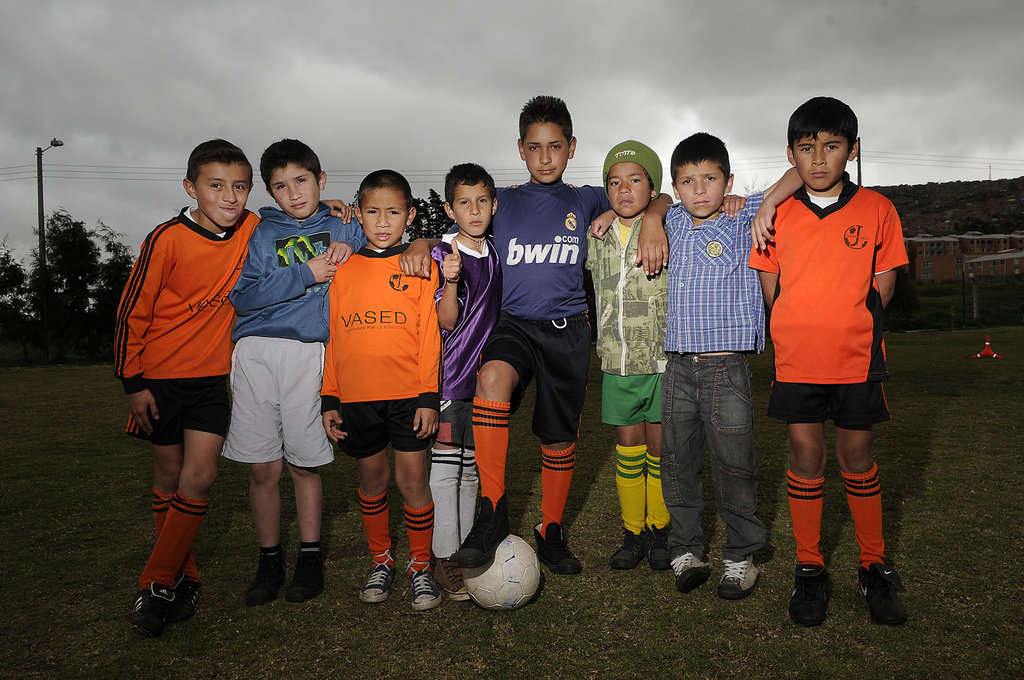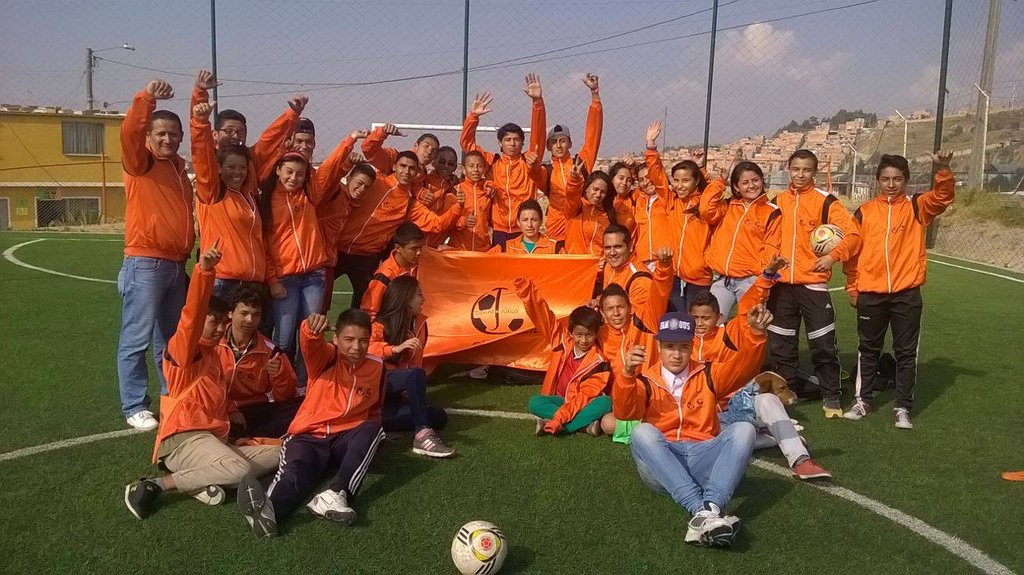By Esteban Reyes | Director
The soccer school of Tiempo dde Juego, which started to grow in 2006, took from the beginning two special characteristics: on one hand, it used a very deferential methodology, in which competition gave way to cooperation; on the other hand, it gave the role of teachers to the very same kids who participated in it, selected naturally for their qualities and their personalities. As a result of these two principles, the community of Cazucá started to look upon this group of kids (who played football in mixed sides) in a certain light: kids who sat down in a circle before and after each game to define the rules, who did not use referees even for a tournament and most curiously of all, followed the instructions of a child equal or younger in age than them, whom they even called “teacher”.
Football for peace (fútbol por la paz) was founded 20 years ago in the communities of Medellín, as a direct result of the death of Andrés Escobar. Students of the Universidad de Antioquia (Alejandro Arenas, Agustín Ortíz and Jürgent Griesbeck) decided to enter Comuna 13, on finding out that the killer of said footballer was from the same community. There, they organised a game between the most dangerous and well-known gangs in all of Medellín, even managing to persuade them to go without arms in order to reach an agreement for harmony, transforming football into the most effective means of reconciling of their respective differences and problems. From then on, football games were played in three steps according to this methodology: first, agreements for harmony were reached in relation to their behaviour and attitude on the football pitch as well as technical agreements changing the rules, again orientated towards peace, from which the banning of sliding challenges and the absence of a referee have become a key part of the model; secondly, the game itself was played, with the presence of women on the football pitch and also the peculiarity that a woman would open the scoring in each half; finally, the players would be reunited for a look back on the game, evaluating compliance with the agreements for harmony which gave points/goals to each player and his/her team – depending on this, scorers were changed and so were the winners.
This methodology has provided the world with a very simple way of making the dreams of many boys and girls a reality by allowing them to play football and enjoy themselves whilst at the same time educating them. This simple model, adopted by Tiempo de Juego since its foundation, has demonstrated a fun and educational way of altering the rules of the sport as well as promoting harmony on the playing fields; conveying values; encouraging social inclusion; and transforming the often harmful realities that the children face in their own communities.
Nowadays, the soccer schools of Tiempo de Juego gather together more than 1000 kids form Cazucá, Santa Marta and Cartagena, who have found in soccer an amazing opportunity to make their dreams come to reality.
Project reports on GlobalGiving are posted directly to globalgiving.org by Project Leaders as they are completed, generally every 3-4 months. To protect the integrity of these documents, GlobalGiving does not alter them; therefore you may find some language or formatting issues.
If you donate to this project or have donated to this project, you can receive an email when this project posts a report. You can also subscribe for reports without donating.
Support this important cause by creating a personalized fundraising page.
Start a Fundraiser
